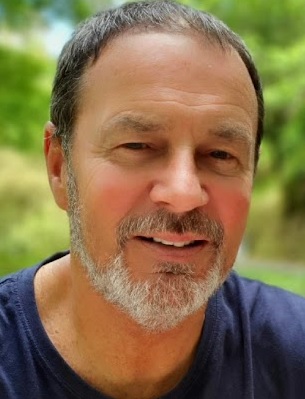I like road trips. It’s a great time to ponder the state of things and cogitate. The roads are windy and interesting and every corner and crest of a hill reveals a fresh vista. And stops in small towns are a highlight. There’s always a place for a nice cuppa and date scone.
Small towns in New Zealand have a different pace of life and there’s a familiarity that locals share with each other, and friendliness to outsiders, that is largely absent in larger towns and our cities. As is often said, everyone knows everyone else’s business but when the fowl house blows down in a storm, there’s never a hesitation of a helping hand to catch the chocks and resurrect the chicken wire.
There’s something else that should be appreciated about small towns in New Zealand. As more people have gravitated to larger towns or as small towns become larger towns, we should realise how they provide an important cultural aspect, for New Zealand as a whole.
Otaki is a case in point. It has always provided an ideal environment to bring up kids – good schools and great outdoors. That also happens to be an ideal environment for retired people. That means there are plenty of people in business and with careers; the parents of the children and, often, the children of the retirees. This means that whanau is the basis of the way the town thinks and works. People look out for each other and care if someone is in need.
Okay, if this is an idealised view, it is also largely true if we believe that generosity-of-spirit is a basic human condition. And we should always be mindful that while small town crime rates and the scurges of drug-taking make the news, all the good in a small community hardly ever does.
In so many ways, small town New Zealand is the nation’s incubator of good citizens and talent. The kids grow up and might stay in the town, or move elsewhere to enrich another patch. The incubator is richer than many city environments because kids see the world as accessible, supportive, familiar and exciting. The ethnic, cultural and demographic mix in many small towns are the ingredients.
So let’s allow ourselves to believe small towns, like Otaki, contribute things to society that go well beyond the population size? Then, we should consider what happens if we lose these things?
A recent report gave me pause about the true meaning of community. A 2degrees survey of customers found that nearly one-in-four said no community was important to them in their daily lives. Not in the report was the split between small towns and cities, but I’d stake money on a lack of community spirit being stronger in larger centres.
Then we see commentary about the closure of bank branches and Post Shops in our small towns. These have traditionally provided a vital service focal point for people meeting and supporting each other. Of course, the general decline of sports and social clubs, less church attendance and the move to online shopping, is all taking more people away from the town square and leaving them at home or in an office.
While all this is happening, we should not lose site of the fact that change is inevitable and in many respects unavoidable. But one change small town should never accept is the loss of a sense of community and interconnected identity that has always made it work.
To me, small towns like Otaki have an opportunity to do this if the unique aspects of the town’s identity are identified, appreciated and worked on to enhance its attributes.
While change is inevitable, why wouldn’t the community consider investing in a physical community space where citizens can meet, which might also have paid people supporting the social and community support activities of the town. Maybe such a space could be financially attractive for Post Shops, banks and a cyber cafe to take space, offsetting some of the costs.
Above all, small towns should turn all of the incubator benefits of being accessible, supportive, familiar and exciting, back in on itself so that these things are sustained.
It’s worth the effort for the sake of Aotearoa and a nice cuppa and date scone on a road trip.
 You can contact Fraser here.
You can contact Fraser here.
Fraser Carson is the founding partner of Wellington-based Flightdec.com. Flightdec’s kaupapa is to challenge the status quo of the internet to give access to more reliable and valuable citizen generated content, and to improve connectivity and collaboration.
Flightdec websites include: KnowThis.nz, Issues.co.nz and Inhub.org.nz.
OTHER POSTS
LATEST POSTS
- Who was our first knight?
- Carl Lutz – farmer who loved the land, and Fordsons
- Arthur saw nature ‘with eyes of admiration’
- Ōtaki abuzz with film festival - Ōtaki Today
- Hall helps to connect and build community
- Fear breeding fear, fear and more fear
- Plenty of help organisations in times of need
- Poor official communications fuel misinformation
- Cultural infrastructure could be our saviour
- Four-storey blocks coming as developments fast-tracked
- The world’s therapist offers little hope for global ills
- Modern conservatism the quiet killer
- Di’s QSM for services to community and environment
- However bad it might get, keep smiling
- AI is coming, ready or not
- Rewi’s story one of adversity in old Ōtaki
- Arise King Brown of the Kingdom of Auckland
- Rebuilding should draw on mātauranga
- Urban designer poses critical question - What’s the plan for Ōtaki?
- Brown hits the fan as water levels rise
